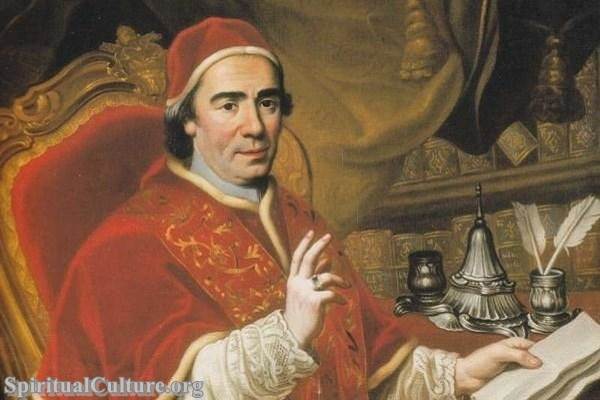From childhood, many are comforted by the thought of an unseen protector watching over them—an invisible guardian, gentle yet powerful. The Catholic faith holds deeply to this comforting reality, teaching that every soul, from birth until death, is accompanied by a guardian angel assigned by God Himself. This belief is more than mere tradition; it is a profound spiritual truth, woven into the very fabric of Catholic spirituality and prayer life.
As “Spiritual Culture,” we invite you into an exploration of guardian angels, examining their role not only as protectors from physical harm but as spiritual guides leading us closer to God. This article will journey into the scriptural foundations, rich traditions, and deeply personal implications of believing in a guardian angel, revealing why this doctrine continues to resonate profoundly with Catholics around the world.
Guardian Angels in Scripture and Tradition
Foundations in the Bible
Guardian angels are vividly illustrated within Sacred Scripture. The most direct biblical reference to guardian angels appears in the Gospel of Matthew, where Jesus Himself speaks clearly about the reality of these heavenly companions:
“See that you do not despise one of these little ones, for I tell you that in heaven their angels always behold the face of my Father who is in heaven.” (Matthew 18:10)
This passage explicitly highlights two critical truths held by Catholics: that guardian angels exist and are closely united to God, continually beholding His face. Their intimate connection with God equips them uniquely to guide and protect humanity.
The Old Testament also supports this belief. Psalm 91 beautifully captures the protective role of angels:
“For he will command his angels concerning you,
to guard you in all your ways.
On their hands they will bear you up,
lest you dash your foot against a stone.” (Psalm 91:11-12)
Such verses provide Catholics a solid scriptural basis for believing in these invisible, divine helpers sent by God.
Church Tradition and Teachings
Beyond Scripture, Catholic doctrine has been further enriched by saints, theologians, and official Church teachings. From the early Fathers such as St. Jerome, who declared that every human soul has an angel assigned to guard it, to medieval theologians like St. Thomas Aquinas, who offered detailed reflections on angels, the tradition is clear and consistent.
The Catechism of the Catholic Church explicitly affirms:
“From its beginning until death, human life is surrounded by their watchful care and intercession. ‘Beside each believer stands an angel as protector and shepherd leading him to life.’” (CCC 336)
Thus, guardian angels are presented not only as passive protectors but as active participants in the journey toward eternal life.
The Role and Mission of Guardian Angels
Protectors from Physical and Spiritual Harm
At the heart of the Catholic belief is the conviction that guardian angels shield us from physical dangers. Countless personal accounts across generations speak of mysterious interventions where harm was narrowly avoided—moments Catholics attribute gratefully to their guardian angels.
Yet the angel’s deeper role is spiritual protection. Guardian angels constantly battle spiritual dangers, helping souls to resist temptation, discern God’s will, and avoid the subtle snares of evil. They do not merely defend against physical threats but safeguard the eternal destiny of the souls entrusted to them.
St. Padre Pio famously advised his spiritual children:
“Never forget this invisible companion, always present to listen to you, always ready to console you.”
Guides to Holiness and Prayer
Guardian angels do more than protect; they gently lead souls toward holiness. They encourage virtuous actions, inspire prayer, and offer subtle guidance to help individuals make choices aligned with God’s will. Catholics believe that through quiet, interior promptings, angels can influence human hearts, always pointing them toward truth, goodness, and beauty.
Pope St. John XXIII, renowned for his deep devotion to his guardian angel, often urged the faithful to communicate frequently with their angel, stating:
“Your guardian angel is a good advisor; he intercedes near God, on your behalf; he helps us in our needs.”
Companions at the Hour of Death
Catholic tradition also reverently portrays guardian angels as faithful companions at the moment of death, guiding the soul from this earthly life into the presence of God. Liturgical prayers of the Church beautifully capture this belief, invoking angels to accompany the departed soul into paradise.
In funeral liturgies, Catholics often hear the prayer:
“May the angels lead you into paradise; may the martyrs come to welcome you and take you to the holy city, the new and eternal Jerusalem.”
This reassuring doctrine underscores a profound belief in God’s compassionate care, even at life’s final moment.
Practical Ways Catholics Relate to Guardian Angels
Daily Prayer and Devotion
For many Catholics, praying to guardian angels is a treasured part of daily spiritual practice. The simple and beloved Guardian Angel prayer is taught to children and remains a comforting devotion throughout life:
“Angel of God, my guardian dear,
To whom God’s love commits me here,
Ever this day be at my side,
To light and guard, to rule and guide. Amen.”
This prayer expresses trust and reliance on the angel’s guidance and protection, affirming their presence in daily life.
Feast of the Guardian Angels
Catholics honor guardian angels formally on October 2nd, the Feast of the Guardian Angels. Established officially by Pope Paul V in 1608, this feast encourages believers to reflect deeply on the reality and role of angels. It invites Catholics not only to honor their angelic companions but to deepen their own responsiveness to angelic guidance.
Personal Stories and Experiences
Throughout history and in contemporary life, many Catholics share personal experiences of encountering their guardian angel’s protection or guidance. These stories are not merely anecdotal; they reinforce a communal belief and foster spiritual encouragement. The profound testimonies of countless saints and everyday faithful continue to inspire devotion and trust in guardian angels.
St. Gemma Galgani, a mystic deeply familiar with angelic companionship, described vividly her relationship:
“My guardian angel has never ceased to enlighten me, instruct me, and comfort me in my troubles.”
Such accounts encourage Catholics to cultivate a more conscious, ongoing relationship with their own guardian angels.
Common Questions and Misconceptions
Do Angels Replace God’s Direct Care?
One common question is whether reliance on angels might overshadow reliance on God Himself. Catholic teaching clarifies that guardian angels never replace God’s care; rather, they are instruments of it. Angels, by their nature, always direct souls back to God, never drawing attention to themselves.
Can Guardian Angels Help Non-believers?
The Church teaches that guardian angels are given to every human person, regardless of faith or belief. Their mission of guidance, protection, and intercession is universal, rooted in God’s limitless mercy and love for all humanity.
Reflect and Reimagine
Belief in guardian angels invites you into a deeper awareness of God’s tender, attentive care. It encourages you to consider your life not as an isolated struggle but as a sacred journey guided by divine providence and angelic companionship.
Take a quiet moment today to recall that you are never truly alone. Your guardian angel walks silently yet faithfully beside you, urging you toward goodness, comforting you in sorrow, and rejoicing in your victories. This divine truth can profoundly change how you face your daily life—awakening a renewed trust in God’s unseen presence and fostering deeper spiritual attentiveness.
May you grow ever more aware of your heavenly companion, allowing this sacred friendship to guide your steps ever closer to the heart of God.


